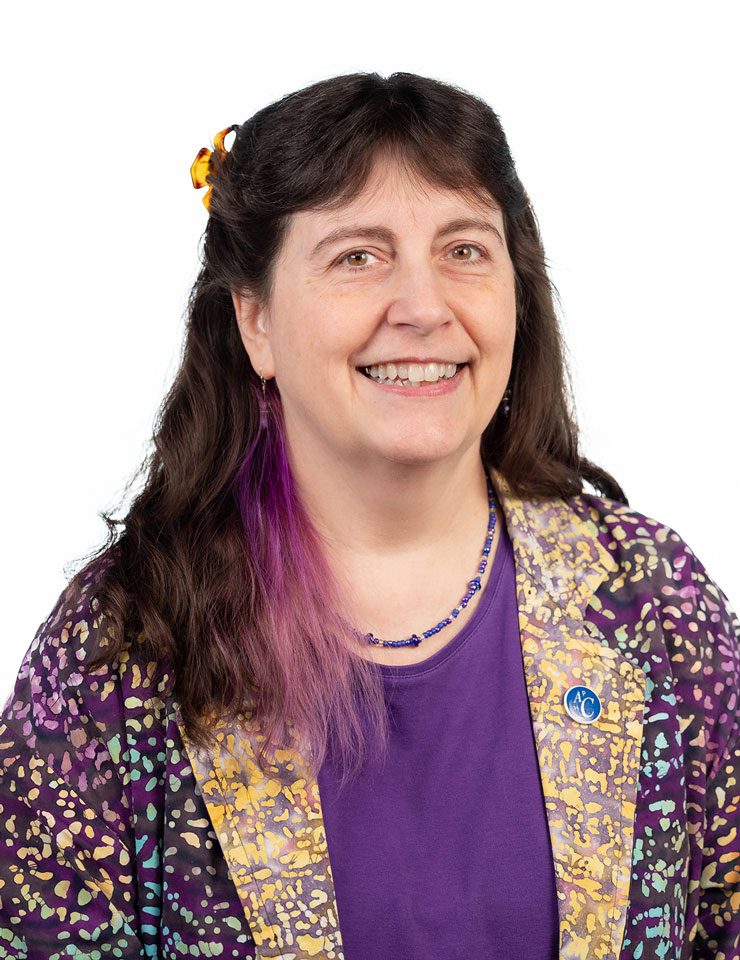
PhD in Communication and Information
Our trailblazing, interdisciplinary doctoral program is designed to prepare students for positions in research-intensive institutions or to work at other types of educational institutions and industry positions.
Program overview
Graduates from the CCI doctoral program have gone on to successful careers in higher education, government, industry, and other business sectors.
Industry and business leaders continue to tell us that they want a workforce with integrated knowledge and skill sets that are needed to solve the problems of the world today. CCI’s interdisciplinary doctoral program meets these market demands and prepares students for that workforce.
The combination of outstanding professors, excellent students from diverse backgrounds, interdisciplinary curriculum, state-of-the-art labs, and professional development opportunities sets CCI’s doctoral program apart from other programs.
Why study Communication and Information?
Students pursuing a PhD in Communication and Information are expected to be able to explain and apply core theories within their area of concentration (i.e., advertising, communication studies, information sciences, journalism and media, and/or public relations); explain and apply quantitative and/or qualitative research methods; and be productive in advancing knowledge in the communication and information fields and demonstrate an interdisciplinary approach to research.
Upon completion of the program, students should:
- Have an understanding of the types of service expectations they may encounter in their academic careers.
- Be prepared to be successful in academic positions at local, regional and research-intensive institutions.
- Have confidence in their research abilities.
- Have had the opportunity to prepare, submit and present/publish research manuscripts before completion of their degree either alone or in conjunction with faculty.
- Be well versed in philosophy of inquiry, be familiar with the theoretical and methodological traditions that constitute the body of knowledge in areas of communication and information studies, and steeped in the literature of at least one (preferably more) specific discipline(s) represented by the college.
- Have a working knowledge of the fundamental principles and practices of at least one discipline represented by the larger university beyond their primary area within communication and information study.
- Be prepared to teach in the classroom at the undergraduate and graduate levels.
- Have experience with the scholarly and professional associations relevant to their area of study/teaching.
What can you do with a PhD in Communication and Information after graduation?
The goal of the PhD program is to prepare graduates for positions in research-intensive institutions if they so choose. This preparation will also enable them to work at other types of educational institutions and industry positions. This is a residential program with students attending classes in person.
Student learning outcomes
- Students will apply core communication theories and/or concepts within their area of concentration (i.e., advertising, communication studies, information sciences, journalism and media, or public relations).
- Students will apply quantitative and/or qualitative research methods within their area of concentration (i.e., advertising, communication studies, information sciences, journalism and media, or public relations).
- Students will be productive in advancing knowledge in the communication and information fields using an interdisciplinary approach to research.
The committee wanted my research to be rigorous, and because it was, I was able to land this ideal position. If it wasn’t for the advising, mentorship, and encouragement I received, I wouldn’t be prepared for this position.”
Kevin Mallory (’22), PhDAssistant Professor of Library & Information Studies, Old Dominion University

Request more information
We’re here to help!


Moonhee Cho
Director of College-Wide Graduate Programs
DeForrest Jackson Professor



